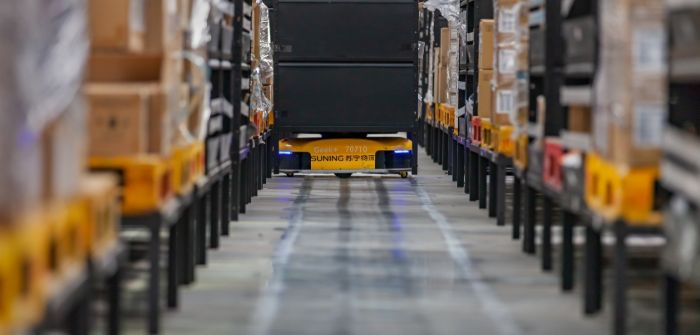The coronavirus outbreak could speed up the development of unmanned logistics, according to Suning Holdings Group.
Logistics has grown sharply under the self-isolation policy, with orders from Suning’s Convenience Stores increasing 419% and order online and pickup at the store volumes in Suning’s Food Markets up 655%.
Suning says the epidemic demonstrates the advantages of unmanned technology, improving transfer efficiency between warehouses and consumers.
Unmanned logistics can move packages from an unmanned warehouse to the distribution center through an unmanned ground truck, then to its destination in an unmanned delivery trolley or drone.
Intelligent equipment in Suning’s unmanned warehouse work under an independently developed control system called Compass.
In the unmanned warehouse, unmanned forklifts use the visual navigation technology to accurately load goods, then ground robots transport goods to the robot arm picking area through intelligent path planning, autonomous navigation and automatic obstacle avoidance.
The robot arm puts goods on the conveyor belt through an automatic destacker system, and after packing and labeling, the goods are sorted out of the warehouse.
During the epidemic, Suning Logistics launched the ‘Contactless distribution service’ with 5G unmanned vehicles.
Working with Suning Convenience Stores, Suning Logistics set up an unmanned delivery team guarantee around the 3km instant delivery service.
In early 2018, Suning Logistics completed tests for its unmanned ground truck Xinglong One, using artificial intelligence, assisting radar, high-precision maps, cameras and sensors to identify objects up to 300m (985ft) away.
Suning started testing drone logistics, with the first delivery taking place in Anji, Zhejiang province, in June 2017.
Regular drone services were launched in December 2017 in Lingbi, Huaiyuan and Jinzhai counties in Anhui province.


